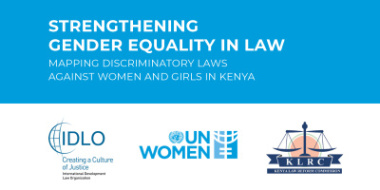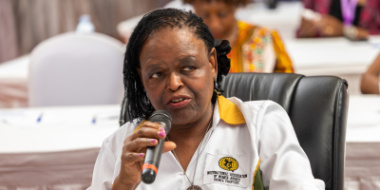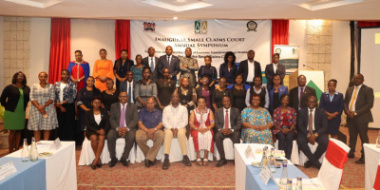IDLO Director-General to visit Kenya to discuss electoral justice and gender equality
Media Advisory: Interview Availability. Nairobi, April 27, 2017 - The Director-General of the International Development Law Organization (IDLO) will visit Kenya from May 3 to 5, 2017 to discuss electoral justice, gender equality and the rule of law with representatives of the Government of the Republic of Kenya, the judiciary, the legislative, diplomatic community, civil society and the women’s movement.














